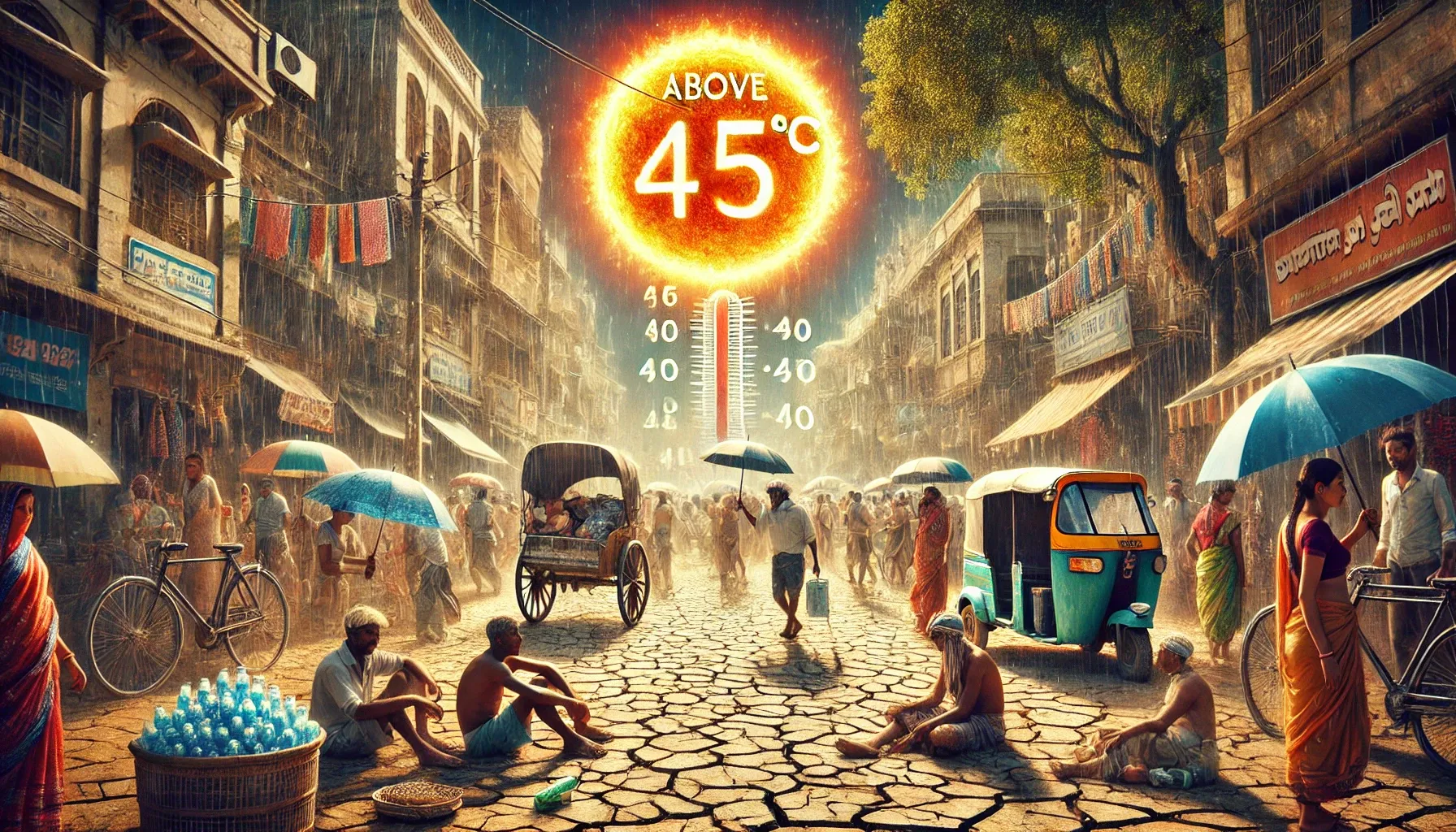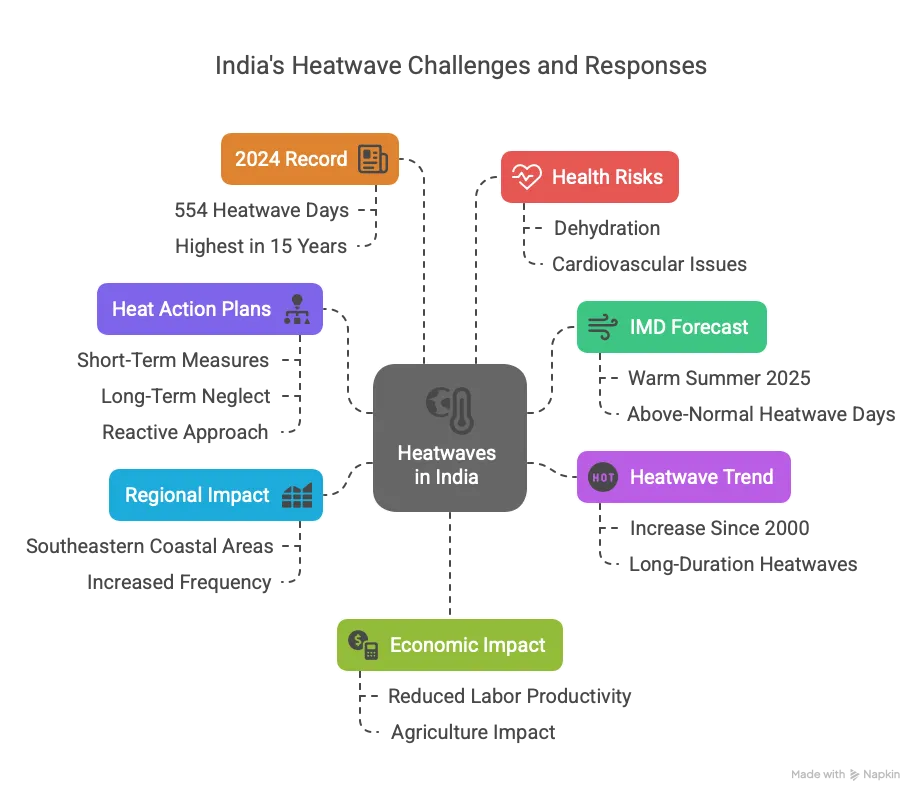UPSC
Indian Express Concise
India’s Preparedness for Extreme Heat: Challenges and Gaps
Last Updated
3rd April, 2025
Date Published
3rd April, 2025
Share This Post With Someone

Published on April 2, 2025, in The Indian Express, this article examines India’s readiness to face an anticipated scorching summer in 2025, as forecasted by the India Meteorological Department (IMD). It highlights the increasing frequency and intensity of heatwaves, the adequacy of heat action plans, and the broader implications for public health, economy, and governance, offering critical insights into climate adaptation and disaster management in India.

Key Points
- IMD Forecast: The IMD predicts an extremely warm summer from April to June 2025, with above-normal heatwave days across northern, central, and eastern India, except for the extreme south, northeast, Jammu & Kashmir, and Himachal Pradesh.
- Heatwave Trend: Since 2000, heatwave days have increased by about three per decade in central, northwest, and southeast India, with long-duration heatwaves (seven days or more) becoming more common, per a Climate Dynamics study.
- Regional Impact: Southeastern coastal areas (Odisha, Andhra Pradesh, Telangana, Chhattisgarh) show a pronounced relative increase in heatwave frequency.
- 2024 Record: Last year saw 554 heatwave days nationwide, the highest in 15 years (second only to 578 in 2010), with every state except Nagaland, Manipur, Mizoram, and Tripura affected; Kerala recorded six heatwave days.
- Temperature Context: 2024 was the warmest year globally and for India, though heatwave days don’t directly correlate with annual average temperatures, which reflect broader averages rather than localized extremes.
- Health Risks: Prolonged heat exposure causes dehydration, cardiovascular and respiratory issues, and can worsen existing conditions, potentially leading to sudden deaths, though India lacks comprehensive heat-related illness data.
- Economic Impact: Heatwaves reduce labor productivity and income, especially for the poor, with agriculture and outdoor work heavily affected.
- Heat Action Plans (HAPs): Many states and cities have HAPs to mitigate heatwave impacts, but implementation is often inadequate, focusing on short-term relief rather than long-term solutions.
- Short-Term Measures: Governments provide drinking water, shaded areas, and hospital preparedness for heat-related illnesses, reacting to heatwaves rather than preventing them.
- Long-Term Neglect: Sustainable interventions like urban greening, water body restoration, and park creation, which lower local temperatures, are largely ignored.
- Reactive Approach: HAPs are triggered by forecasts or alerts, not integrated into broader developmental strategies as a climate adaptation measure.
- Study Findings: A Sustainable Futures Collaborative study notes that administrations prioritize immediate responses over proactive, comprehensive planning.
- Adaptation Need: With climate change intensifying heatwaves, India must shift from reactive disaster management to proactive risk governance to address future extremes.
Glossary
- Heatwave: A period of abnormally high temperatures, often exceeding normal by 4.5°C or more, posing health and economic risks.
- IMD: India Meteorological Department, the national agency forecasting weather and climate trends.
- Climate Dynamics: A journal publishing research on climate patterns, including India’s heatwave trends.
- Heat Action Plans (HAPs): Strategies by states and cities to reduce heatwave impacts on populations.
- Sustainable Futures Collaborative: A Delhi-based research group studying climate adaptation and heatwave preparedness.
- Long-Duration Heatwaves: Heatwaves lasting seven days or more, increasingly prevalent in India.
- Urban Greening: Planting trees and vegetation in cities to reduce heat and improve air quality.
- Climate Adaptation: Adjusting policies and practices to minimize climate change impacts.
- Risk Governance: Proactive management of climate risks through coordinated government efforts.
- Dehydration: Loss of body water due to heat, leading to health complications if untreated.
Link To The Original Article – https://indianexpress.com/article/explained/explained-climate/with-a-very-hot-summer-ahead-how-prepared-is-india-9921095/